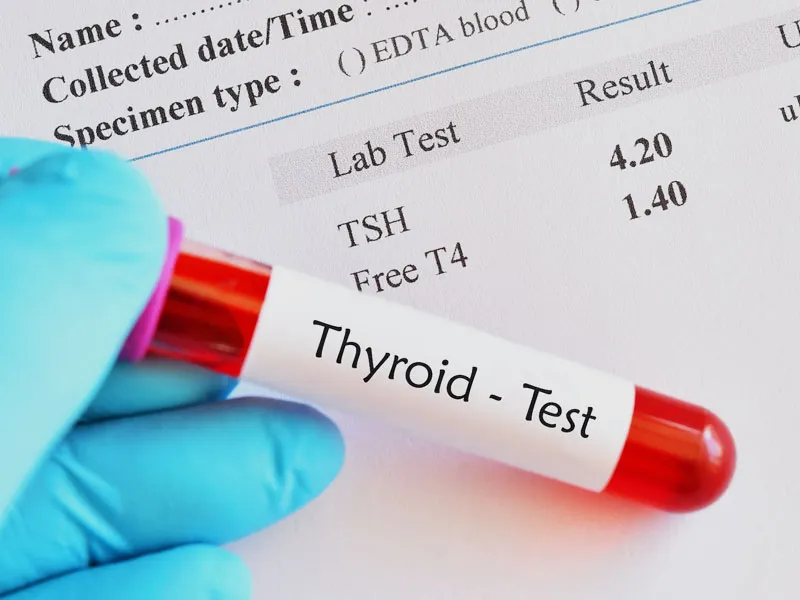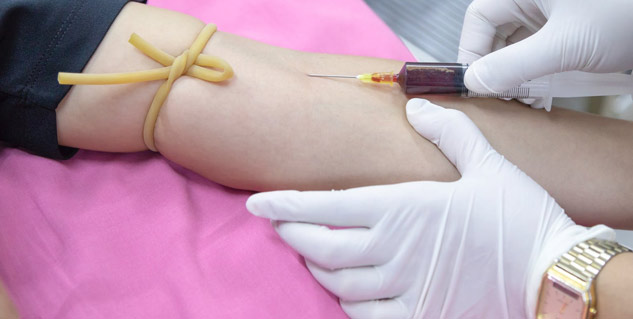
The human body is complex, and hormones are the key messengers that conduct millions of processes. Of these, thyroid hormones occupy a very special place, controlling everything from our energy and metabolism to mood and heart rate. But how do we check if our thyroid gland is doing its job right? Enter the Thyroid Stimulating Hormone (TSH) test, which is a quick but amazingly potent diagnostic tool that serves as your thyroid's very own report card.
Table of Content:-
If you've ever experienced unusually low energy levels, battled with spontaneous weight gain or loss, or sensed mood changes, a TSH test may be the first step for your doctor to figure out what is happening. But what is TSH, and when is this test needed?
What is Thyroid Stimulating Hormone (TSH)?
In an exclusive interaction with us, our expert, Dr Bhumesh Tyagi, Consultant, General Medicine and General Physician, Shardacare, Health City - Noda, explained that although its name suggests otherwise, TSH is not made by your thyroid gland. Rather, it is a hormone made and secreted by your pituitary gland, a small but powerful pea-sized gland at the bottom of your brain. Use the pituitary gland as your thyroid's control centre. Here's the intricate feedback loop through Dr Tyagi’s lens:
When thyroid hormone levels are low: Your pituitary gland picks up on this decline and sends more TSH. TSH makes its way to your thyroid gland, instructing it to release more thyroid hormones (mainly thyroxine or T4, and triiodothyronine or T3).
When thyroid hormone levels are high: On the other hand, if your body is more than thyroid hormones, your pituitary gland cuts back on its TSH production. This instructs your thyroid to decrease.
Thus, the level of TSH in your blood gives an indirect but very precise picture of the functioning of your thyroid gland. A high TSH shows that your pituitary gland is working overtime to stimulate a slow thyroid (common in an underactive thyroid, or hypothyroidism). Low TSH indicates that your thyroid is producing too much hormone, prompting your pituitary to turn down its stimulation (common in an overactive thyroid, or hyperthyroidism).
Also Read: Can Women Prevent Heart Disease? Expert Shares Tips for a Healthy Heart

When Do You Require a TSH Test? Here's When!
The TSH test is a building block of thyroid function evaluation and is usually one of the initial tests prescribed when a thyroid imbalance is suspected. The following are the most important situations when your physician may prescribe a TSH test:
1. General Screening for Thyroid Disorders
Although not always suggested to every individual, certain health care professionals recommend sporadic TSH screening, particularly for people above a given age (e.g., 60 years and above) or with a history of thyroid issues within the family. Early identification can avoid symptom aggravation and permit early intervention.
2. Suspecting Hypothyroidism (Underactive Thyroid) Symptoms
Hypothyroidism is a frequent disorder in which the thyroid gland cannot make enough hormones. Symptoms tend to develop gradually and may be subtle, yet they can have a major effect on quality of life. If you have any of the following, a TSH test is essential:
- Chronic fatigue and low energy
- Weight gain that cannot be explained or weight loss resistance
- Cold intolerance (feeling unusually cold)
- Dry skin and hair, brittle nails
- Constipation
- Muscle aches, tenderness, and stiffness
- Joint pain and swelling
- Depression or mood swings
- Difficulty with memory or "brain fog"
- Heavy or irregular menstrual cycles (in women)
- Slow heart rate
3. Examining Symptoms of Hyperthyroidism (Overactive Thyroid)
Hyperthyroidism is when the thyroid gland overproduces hormones. Though not as prevalent as hypothyroidism, it can also cause a variety of unpleasant symptoms. A TSH test is essential if you have:
- Unexplained weight loss with increased hunger
- Restlessness, worry, and irritability
- Racing or irregular heart rate (palpitations)
- Increased sweating and intolerance to heat
- Tremors, particularly in the hands
- Insomnia
- Muscle weakness
- Increased bowel movements
- Altered menstrual cycles (in females)
- Exophthalmos or bulging eyes (in certain cases of Graves' disease)

4. Surveillance Over Known Thyroid Conditions
If you've previously been diagnosed with hypothyroidism or hyperthyroidism, your regular TSH tests are key to measuring the success of your treatment and keeping your hormone levels within the optimal range. Your physician will base treatment adjustments on these results to increase or decrease your medication dosage.
5. Pregnancy and Postpartum
Thyroid function is vitally significant during pregnancy in both the mother and the fetus. Untreated or poorly controlled thyroid diseases can result in complications. TSH screening may be included in routine prenatal care, particularly for women at risk. In some cases, thyroid disease may develop or become aggravated in the postpartum period as well.
6. Family History of Thyroid Disease
If one of your close relatives (parent or sibling) has a history of thyroid disease, you might be at greater risk for developing one too. Ongoing TSH screening may be advised to detect any changes early.
7. Other Medical Conditions
Some medical conditions are linked with a higher risk of thyroid disease, such as:
- Autoimmune diseases include Type 1 diabetes, rheumatoid arthritis, and pernicious anaemia.
- Adrenal insufficiency.
- Exposure to some medications that can alter thyroid function (for example, lithium, amiodarone).
Bottomline
The TSH test is a valuable asset in determining thyroid health. If you're feeling any symptoms that could indicate a thyroid imbalance, or you have risk factors, don't delay talking to your doctor. A quick blood test can give you vital information, making for a correct diagnosis and treatment, restoring you to your energy and well-being.
Also watch this video
Read Next
Could You Be Among The 24 Million With Undiagnosed ME/CFS? Expert Explains This Chronic Condition
How we keep this article up to date:
We work with experts and keep a close eye on the latest in health and wellness. Whenever there is a new research or helpful information, we update our articles with accurate and useful advice.
Current Version